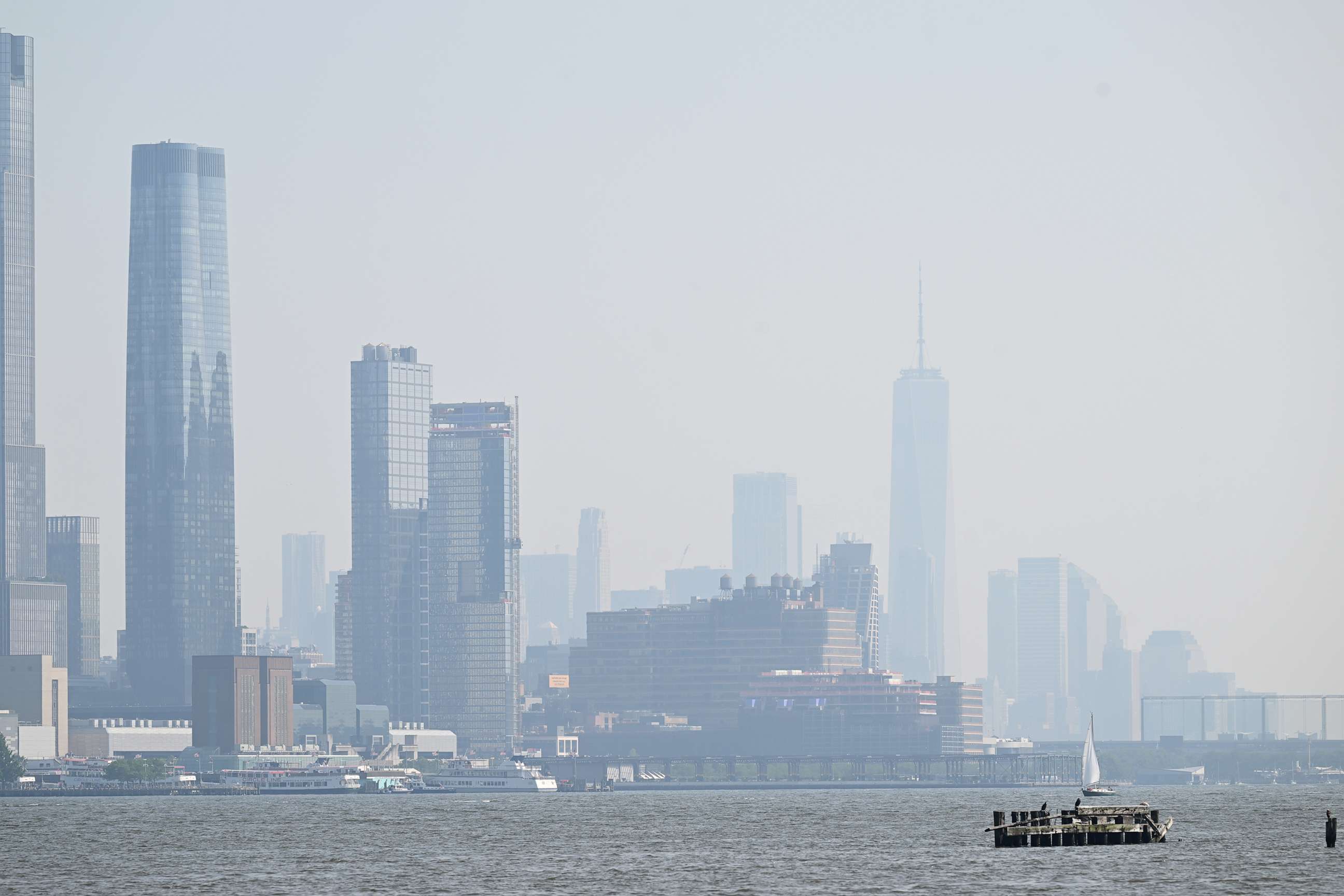Wildfires in eastern Canada affecting air quality in major US cities
Wildfires burning in Canada continue to create hazardous air quality conditions in several states in the northern U.S.
Plumes of smoke from the fires blazing in Halifax, Nova Scotia, began drifting over New York City and the tri-state area on Tuesday, leading to a decrease in air quality, according to the National Weather Service.

Patchy low-level smoke is expected to linger and expand through the region on Wednesday, creating a cloudy haze that will block much of the sunlight, the NWS announced. The smell of smoke will also be present in some areas.
The jet stream, a high-speed, constantly shifting river of air about 30,000 feet into the atmosphere, is carrying the smoke from Nova Scotia through New England and further south in the U.S.

The New Jersey Department of Environmental Protection has issued a "code orange" air quality alert through Wednesday night for several counties, signifying unhealthy air pollution concentrations.
At-risk populations, such as young children, the elderly or those with lung and heart disease, should avoid the outdoors through Wednesday, according to the advisory.
The smoke is also affecting northern states such as Rhode Island, Maine, Vermont and Connecticut and is expected to travel as far south as Washington, D.C.

More than 16,000 people have evacuated the region surrounding Halifax since hotspots began popping up on Sunday near Upper Tantallon, a suburban community outside of Halifax, The Associated Press reported. The uncontrolled fires have damaged more than 200 homes and other structures as the wildfire grew, fire officials said.
The weather is expected to remain hot and dry on Wednesday, with no rain forecast until Friday at the earliest.

Travel and activity in wooded areas have been banned to prevent the chances of reburn in some of the evacuated neighborhoods due to heavy winds.
Air quality alerts are in effect in the Northeast until midnight Thursday.




